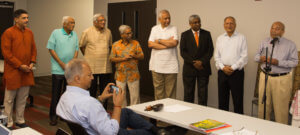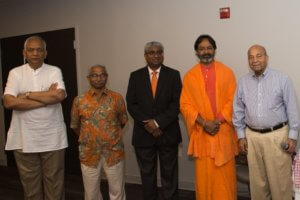
Introduction to Vedas
Course content:
The course ‘Introduction to Vedas’ presents an overview of the central theme of the Vedas and their classification as Rig, Yajus, Sama, and Atharva and structural classification as Samhita, Brahmaṇa, Aranyaka, and Upanisad along with a brief introduction to the allied literature of the Vedas are discussed in this course. The Hindu philosophy of life and worldview that intrinsically supports diversity and universal wellbeing, which has enabled the Vedic culture to sustain itself in the face of considerable adversity is also explored.
Area of Study: Sanskrit Studies
Required / Elective: Required
Prerequisites: Admission to MA Sanskrit
Faculty / Instructor: Dr. Dhananjaya Rao
Start Date:
End Date:
Day:
Time:
Quarter Offered: Fall Quarter
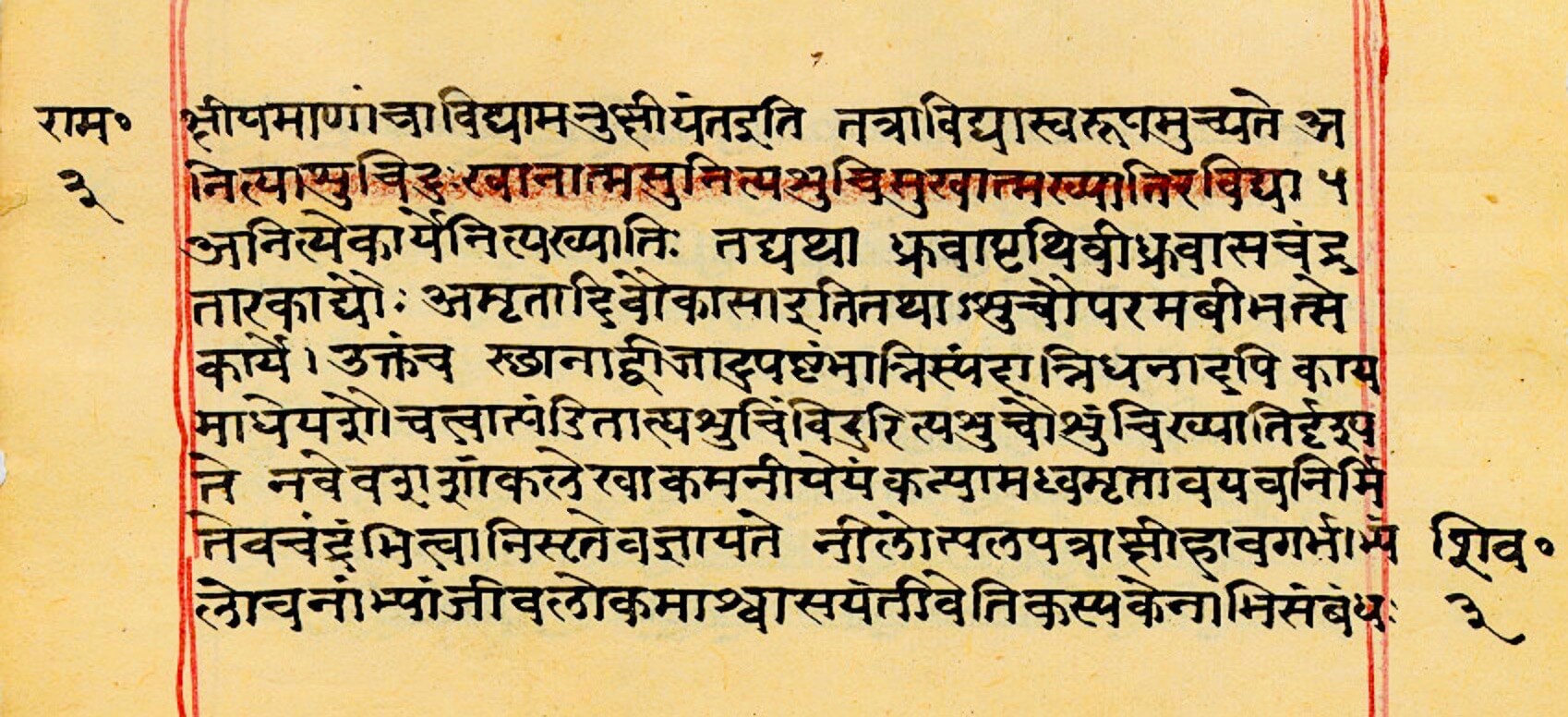
Mimamsa Advanced
Course Content:
This course involves the study of the epistemology of the Bhatta school of Purva-mimamsa, propagated by Kumarilabhatta. The classification of cognitions and their implications along with how each type of cognition arises and how each type of cognition is distinct from the other is analyzed in a text called Manameyodaya, prescribed for this course.
In this course students will be able to:
- Understand and apply theories of empirical and non-empirical cognition.
- Appreciate the classification schema used by the Bhatta school of Purva-mimamsa.
- Develop an appreciation for the intricate and precise nature of Hindu knowledge systems.
Area of Study: Sanskrit Studies
Required / Elective: Elective
Prerequisites: Completion of the Mimamsa Basic course
Quarter Offered: Spring Quarter

Mimamsa Basic
Course Content:
This course involves discussion of the tradition of contributions in the lineage of Purva-mimamsa and provides the background of the hermeneutic nature of this knowledge system. The primer of Purva-mimamsa named Arthasangraha is the text of study used to develop an understanding of the foundations of the Purva-mimamsa school of thought.
In this course students will be able to:
- Observe the evolving nature of Vedic knowledge systems through the range and scope for valid interpretation allowed and valued within the Vedic traditions
- Appreciate the intricate levels to which inquiry is carried out in the Vedic knowledge systems to arrive at conclusions that can stand up to logic and reason
- Apply and use the hermeneutic methods employed in Purva-mimamsa in other knowledge systems and domains
Area of Study: Sanskrit Studies
Required / Elective: Required
Prerequisites: Admission into the Masters Certificate or MA in Sanskrit Program
Faculty / Instructor: Dr. Sowjanya Kumar
Start Date:
End Date:
Day:
Time:
Quarter Offered: Fall Quarter
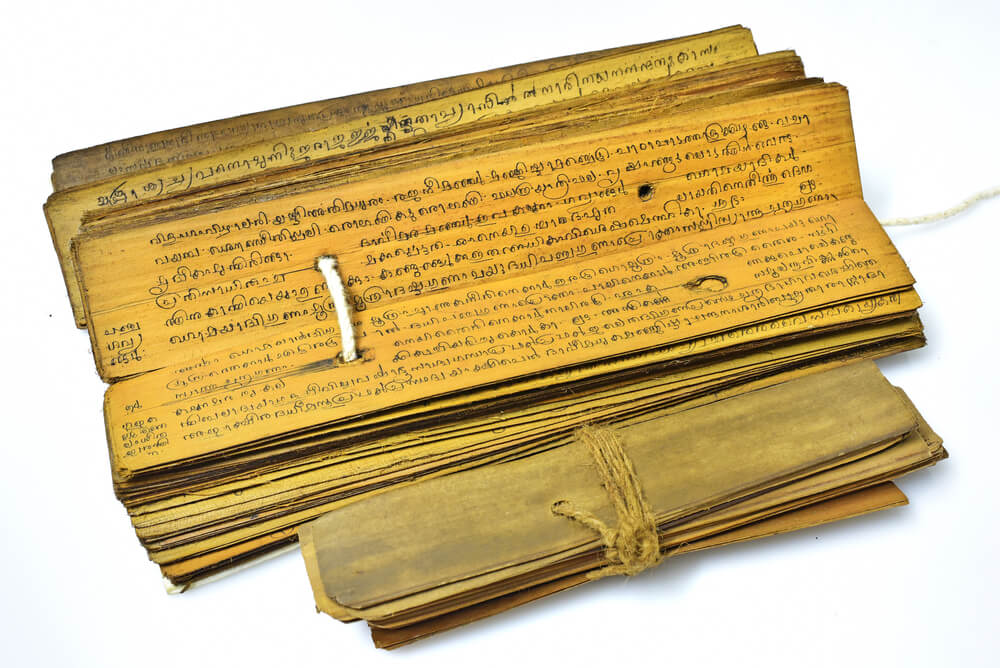
Nyaya-vaisesika Advanced
Course content:
This course introduces the ontology and classificatory schema of the merged system of Nyaya-Vaisesika as presented in the primer named Tarka-sangraha, which is reviewed with refined definitions and logical arguments using the Navya-nyaya terminology. Using a key commentary named Dipika, the course develops the system of definitions and logic, and the generation of the complex terminology and technical language which came to be regarded as a benchmark of intellectual expression across all Hindu sastras.
In this course students will be able to:
- Understand the ontological schema of the universe according to the empirical / realist school of thought in the Vedic systems of Philosophy.
- Recognize how definitions are improvised and enhanced to obtain faultlessly accurate descriptions of various entities in the universe and their characteristics.
- Ability to work with i.e. sort and define entities and attributes of other knowledge systems and work domains.
Area of Study: Sanskrit Studies
Required / Elective: Elective
Prerequisites: Completion of the Nyaya-Vaisesika Basic course
Faculty / Instructor: Prof M A Alwar
Quarter Offered: Summer Quarter
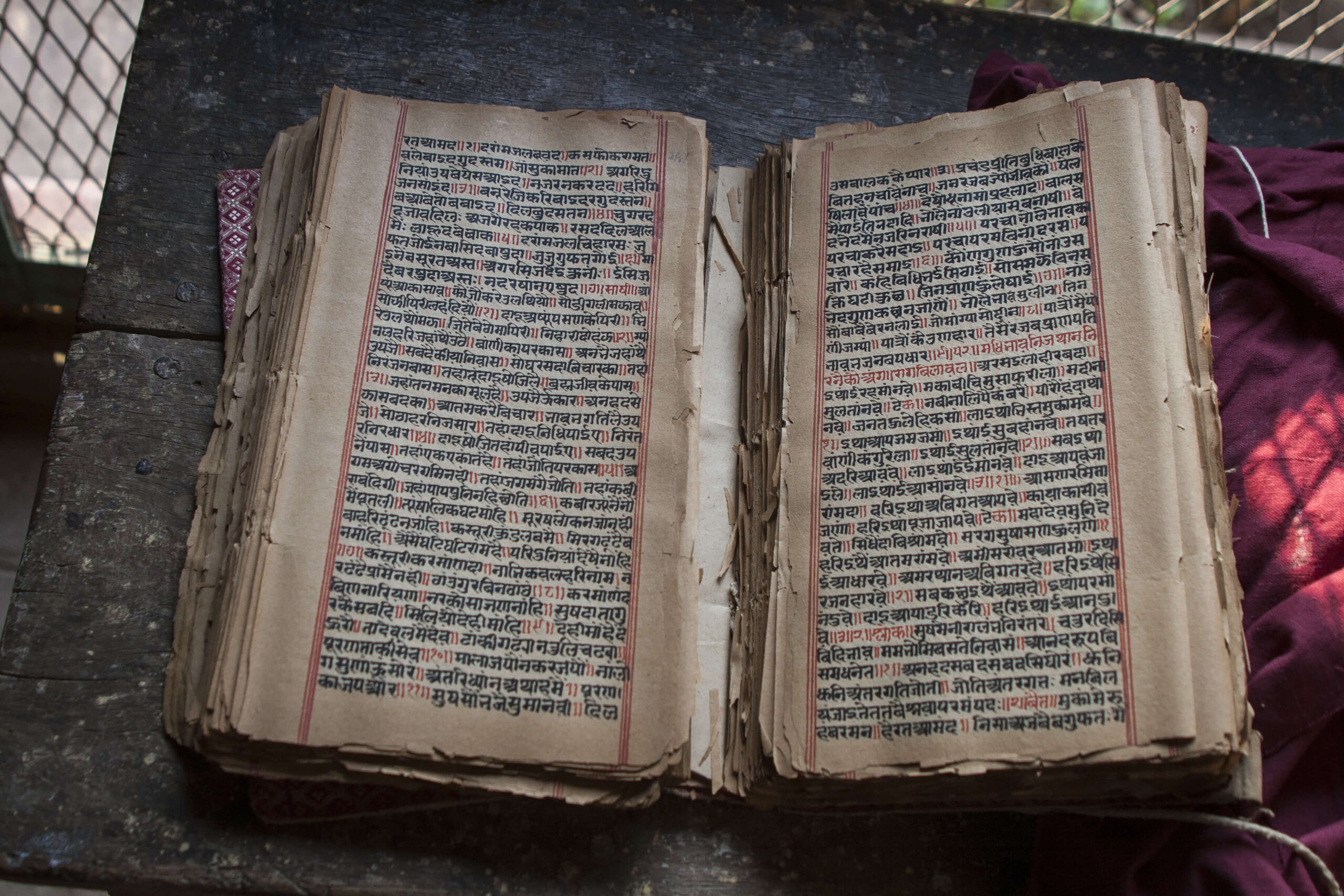
Nyaya Vaisesika Basic
Course Content:
This course examines the evolutionary stages of the Nyaya system of thought from its ancient (pracina) origins to its recent (navya) form, in the process incorporating the Vaisesika ontology into its system.
In this course students will be able to:
- Understand the evolving nature of the use of logic and reason within various technical Indic knowledge systems
- Appreciate the elaborate cognition-centric approach in Indic knowledge systems which emphasized logical reasoning and validation and mechanisms of expression
- Distinguish and apply the classification schema at the heart of the Nyaya system on other Vedic and Indic knowledge systems
Area of Study: Sanskrit Studies
Required / Elective: Required
Prerequisites: Admission into the Masters Certificate or MA in Sanskrit Program
Faculty / Instructor: Mr. Dhananjay Rao
Quarter Offered: Spring Quarter

Term Project – Sanskrit Studies
Course Content:
This course seeks to provide the learner’s familiarity with research experience in a subject of their interest based on their study thus far. The course involves selection of a text or a portion of a text for independent study along with the allied texts and commentaries. It requires the student to present their understanding and interpretation of the selected text portions through a seminar paper. It also involves creating a concept map of the various structures to which the text portion aligns.
In this course students will be able to:
- Independently read, understand, interpret and present the knowledge assimilated from a selected text or portion of a text.
- Apply the methods of comprehension and interpretation of śāstric texts first-hand for deeper assimilation.
- Prepare a concept map of the selected text portion and identify the structures used in framing the text portion in relation to a systematic comprehension of the full text.
Area of Study: Sanskrit Studies
Required / Elective: Required
Prerequisites: Completion of 36 Credit-Hours of Course work in the MA in Sanskrit / Masters Certificate in Sanskrit
Faculty / Instructor: Guided independent work.
Quarter Offered: Winter Quarter
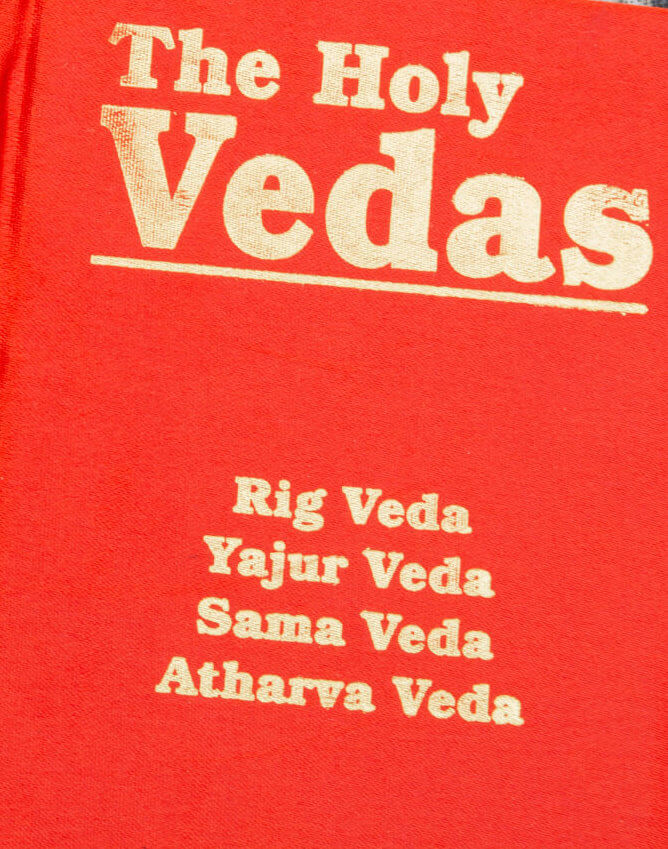
The Vedas – Atharvaveda
Course content:
The course provides an overview of the features and contents of the Atharvaveda as well as provides illustrations from the Samhita, Brahmana and Upanishad sections of the Atharva veda that show how they differ from each other.
In this course students will be able to:
- Understand the arrangement of mantras in the Atharva veda as well as the overview of its contents
- Understand the Vedic worldview through its philosophy of life
- Recognize the variation and divergence of Vedic and classical Sanskrit language
- Distinguish the convergence and divergence in nature, features, form, content, structure, and utility of the four Vedas, with regards to Vedic practices
Area of Study:- Sanskrit Studies
Required / Elective: Elective
Prerequisites: Completion of the course “Introduction to the Vedas”
Faculty / Instructor: Prof M A Alwar, Prof. Ramanujacharya
Quarter Offered: Spring Quarter
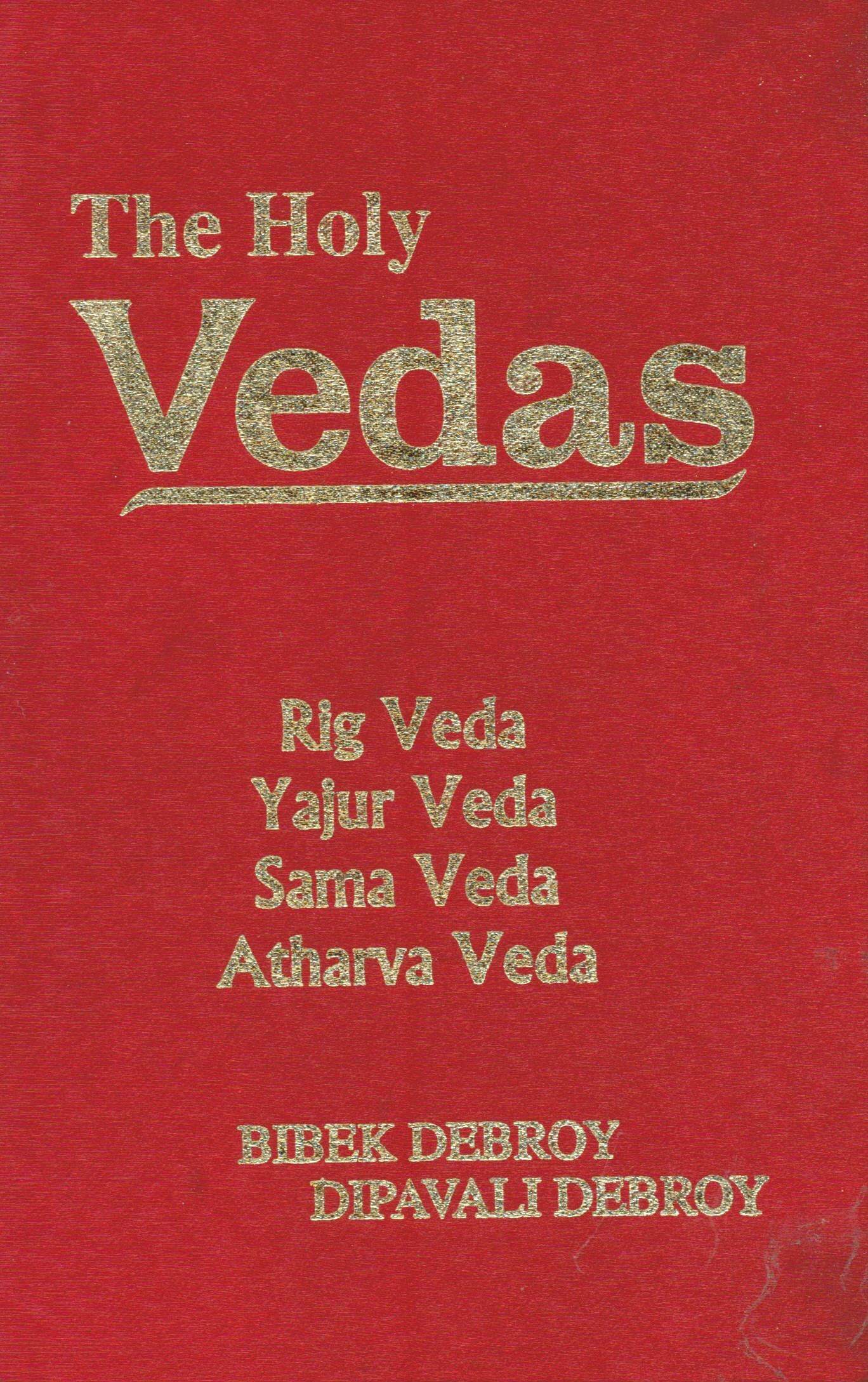
The Vedas (Yajus-Sama) Course content:
The course provides an overview of the features and contents of the Yajurveda and Samaveda as well as illustrations from the Samhita, Brahmana, Araṇyaka and Upaniṣad sections, that show how they differ from each other. The various musical svara-s (intonations) of the Samaveda are also featured in this course.
In this course students will be able to:
- Understand the arrangement of mantras in the Yajur and Sama Vedas as well as an overview of their content
- Understand the Vedic worldview through its philosophy of life
- Recognize the variation and divergence of Vedic and classical Sanskrit language
- Distinguish the convergence and divergence in nature, features, form, content, structure, and utility of the four Vedas, with regards to Vedic practices.
Area of Study:- Sanskrit Studies
Required / Elective: Elective
Prerequisites: Completion of the course “Introduction to the Vedas”
Faculty / Instructor: Prof M A Alwar, Prof. Ramanujacharya
Quarter Offered: Summer Quarter







